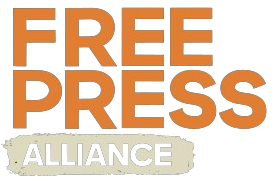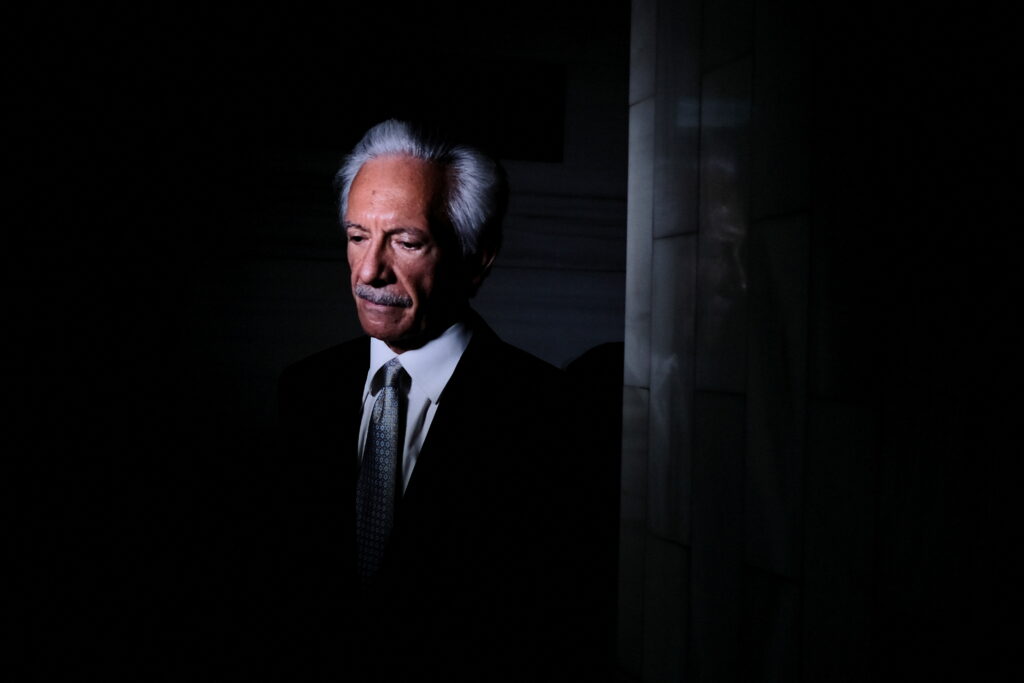On the occasion of Press Freedom Day on the 3rd of May, One Free Press Coalition published a list of the most worrying cases against journalists, headed by Evan Gershkovich followed by José Rubén Zamora.
On 22 July 2022, journalist and founder of elPeriódico, José Rubén Zamora, was arrested by Guatemalan authorities on suspicion of involvement in money laundering activities related to his newspaper. Since the founding of elPeriódico in 1996 and for more than 35 years, José Rubén Zamora has been a dedicated journalist and a pioneer of investigative journalism in Latin America.
His work has consisted of informing the public about cases of corruption and injustice perpetrated by the government or other entities. However, in recent years he has been the target of threats and blackmail, having suffered kidnappings, extortion and physical attacks.
On the day of his arrest, Zamora was at his residence in the company of his children and minor grandchildren. The police broke into his home and proceeded to arrest him without explanation, in front of his family. At the same time, a raid was carried out on the premises of elPeriódico.
José Rubén Zamora was initially sentenced to six years in prison; however, this sentence was later overturned for lack of evidence, following an appeal by the court. He is currently awaiting a retrial, initially scheduled for February 2024, which has been postponed without a definite date. The 67-year-old journalist has now been in detention for more than a year without having received a final sentence. It is expected that the new judicial process will consider alternative measures that would allow him to serve the eventual sentence under house arrest.
So far, no evidence has been found to support the accusations against José Rubén Zamora. This suggests that the accusations against him are unfounded. According to international media, it is important to note that five days before his arrest, elPeriódico published serious allegations of corruption against President Alejandro Giammattei. Previously, Zamora also contributed to bringing to light the scandal related to the purchase of Sputnik V vaccines against Covid-19, which generated suspicions of bribery of the president by Russian businessmen.
The judicial process to which the journalist has been subjected has been marked by irregularities. The judge has systematically rejected any evidence presented by Zamora’s defense, claiming it to be false, and has refused to hear witnesses presented by the defense. In addition, Zamora has had to resort to a court-appointed lawyer because of threats to his private lawyers. These facts are examples of the injustices that José Rubén Zamora has faced.
It is hoped that a fair trial will be held soon, and that José Rubén Zamora will be acquitted of the charges against him.
Several press freedom organizations have denounced the Guatemalan government on multiple occasions for undermining the safety of its journalists.
Guatemalan government against freedom of the press
Following the imprisonment of journalist José Rubén Zamora, owner and president of elPeriódico, the newspaper has ceased operations due to the freezing of its bank accounts as a result of his detention. This episode illustrates how the Guatemalan government, led by Alejandro Giammattei, has shown clear opposition to press freedom. elPeriódico was known for its work in exposing cases of government corruption, which unleashed a series of verbal attacks against journalists and media outlets by the president.
The closure of elPeriódico represents just one example of how the government has sought to silence media outlets that sought to report impartially to citizens. In addition, restrictions have been imposed on access to information on public health issues, and there have been reports of threats and harassment of journalists by security forces. There have even been cases of physical violence and intimidation against journalists covering anti-corruption demonstrations.
Likewise, according to the Community Press list, the number of actions against the practice of journalism can be observed, such as the number of restrictions, intimidation and harassment since he came to power.
Since coming to office Giammattei has not taken effective measures to protect journalists but has instead chosen to discredit their work and has even used physical violence, as demonstrated by the incident on 18 March 2020, when the president sprayed journalists with a bactericidal liquid in front of Congress, describing it as ‘anti-journalist’ liquid. These actions, together with the discrediting of journalistic work, labelling it as ‘barroom gossip’, threats and unjust imprisonment, are clear examples of the lack of press freedom in Guatemala, a situation that must be condemned.
Freedom of the press is a fundamental pillar of a democratic society, as it allows citizens to be properly informed and to exercise their right to choose the source of information that best suits their needs and convictions.

